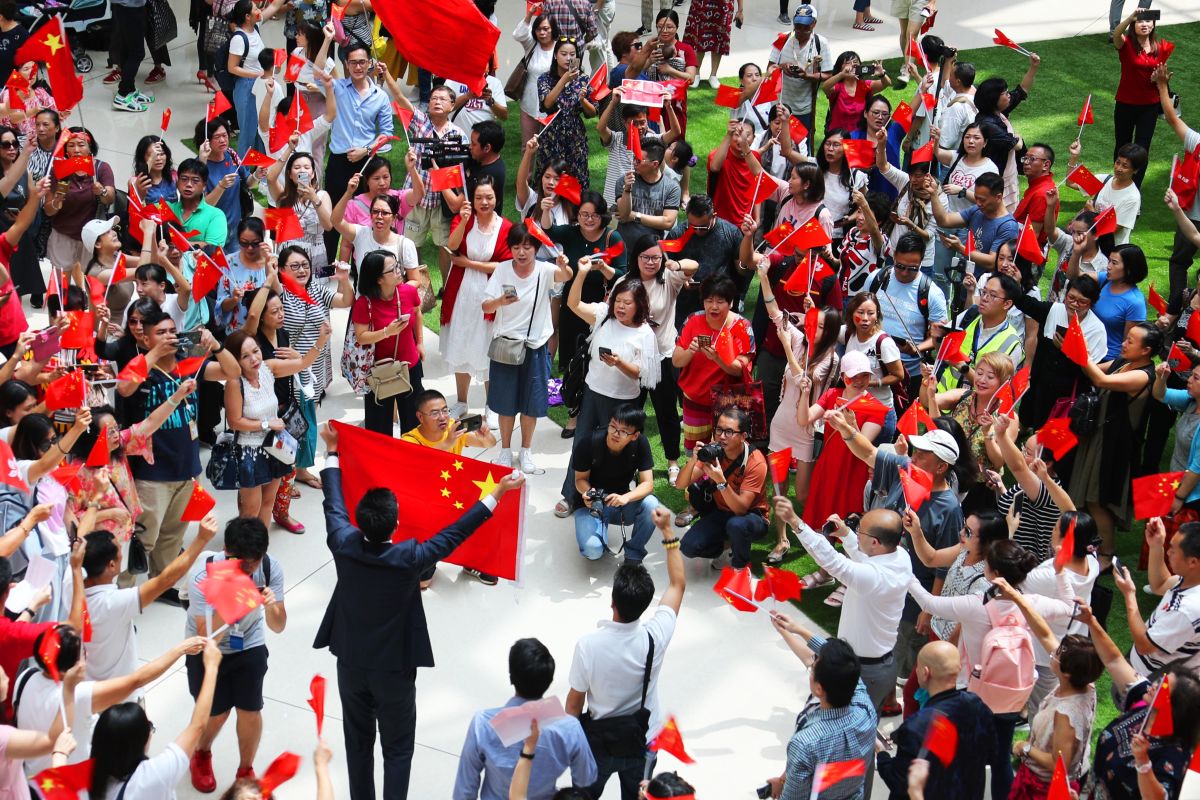US pauses aid to Ukraine, say reports
US President Donald Trump has paused all aid to Ukraine till as much time as it takes to determine President Volodymyr Zelensky's commitment to ending the war with Russia,
The Liaison Office, whose director is the highest-ranking Chinese political official in Hong Kong, was targeted in July by protesters throwing eggs and graffitiing the building.

(Photo: IANS)
China on Saturday replaced its top envoy to Hong Kong, the most significant personnel change by Beijing since pro-democracy protests erupted in the city nearly seven months ago, according to the report.
The removal of the head of the Liaison Office that represents the central government in semi-autonomous Hong Kong comes as the city grapples with its biggest political crisis in decades.
Advertisement
“Wang Zhimin has been dismissed from his position as head of the Liaison Office” and replaced by Luo Huining, state broadcaster CCTV said.
Advertisement
The Liaison Office, whose director is the highest-ranking Chinese political official in Hong Kong, was targeted in July by protesters throwing eggs and graffitiing the building.
Hong Kong is ruled under the “one country, two systems” principle, which gives the territory rights unseen on mainland China — but demonstrators say these are being steadily eroded by an increasingly assertive central government in Beijing.
In December, according to the report, Beijing was considering replacing him, Wang had vowed to continue.
On Wednesday, thousands of people attended New Year’s anti-government march in Hong Kong, the city’s police arrested about 400 people on charges of illegal assembly and possession of arms.
Demonstrations in Hong Kong began in June following a controversial extradition bill, already withdrawn by the government, but have mutated into a movement seeking to improve Hong Kong’s democratic mechanisms and safeguard the region’s partial autonomy from Beijing.
Months of protests have plunged Hong Kong’s economy into recession for the first time in a decade, having contracted by 2.9 per cent in the third quarter, due to falling imports and exports, retail sales and declining tourism.
The protests have been largely peaceful for much of December after pro-democracy candidates overwhelmingly won district council elections the month before.
Hong Kong’s protests are largely leaderless and organised online. They were initially sparked by a now-abandoned attempt to allow extraditions to the mainland but have since morphed into a popular revolt against Beijing’s rule.
The controversial China extradition bill was withdrawn in early September but the movement has morphed into a wider campaign for greater democracy and against alleged police brutality.
Advertisement